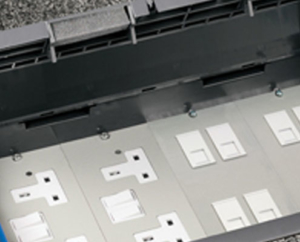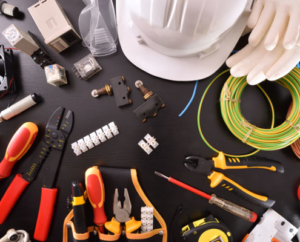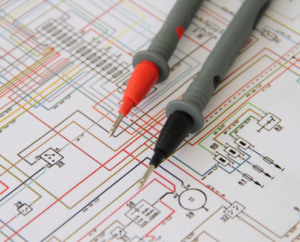Everything You Need to Know About Electrical Installation Work
The backbone of any modern home or business is provided by electricity and, in particular, electrical installations. These are complex systems and, more importantly, potentially dangerous due to the sheer power of electricity. Therefore, it’s vital your electrical installations are both installed professionally and can stand up against the relevant legislation. So what is electrical installation work?
Remember: as a business owner or landlord, you are duty bound to guarantee your electrical systems are safe. Understanding how to achieve this, however, can be confusing. Thankfully, we’re going to give you a helping hand on getting to grips with the dos and don’ts of electrical installations.
What is Electrical Installation Work?
Electrical installation work covers a broad range of tasks, but the most common examples involve the installation, maintenance and repair of the following:
- Electrical devices
- Conductors
- Fittings
- Heating
- Lighting
- Power supplies
To narrow it down to a catch-all classification, an electrical installation is “any electrical items which are connected together by a permanent supply of electricity”. So, as you can imagine, it will cover almost everything of use within a business or property.
Who Can Complete Electrical Installation Work?
When it comes to electrical installation work, it’s crucial you work with an electrical contractor who is fully qualified. Teaming up with those that understand regulations will ensure you minimise any electrical risk with your systems. Most importantly, they need to be contractors who know the BS 7671 regulations inside out. The BS 7671 advises that any wiring systems present in a building must be confirmed safe and in good working order. It also requires electrical installations to be protected from electrical shocks, disturbances in voltage and thermal impacts.
Looking for the presence of an accreditation from the National Inspection Council for Electrical Installation Contracting (NICEIC) is also recommended. NICEIC accreditation demonstrates electrical contractors have been completed government backed schemes to highlight their understanding of electrical safety. These accreditations, which are regularly reviewed by NICEIC, are a sure sign the electrical contractor in question is as professional as they come.
Which Standards Do Your Electrical Installations Need to Meet?
Any electrical installation work needs to adhere to certain standards, and these can be measured against the following electrical certifications:
What are the Different Types of Electrical Certification?
- Electrical Installation Certificate (EIC): you need to be able to show that specific electrical installations are safe, and this is exactly what the EIC achieves. Once any major electrical installations are completed – such as installing failsafe systems and lighting – an EIC will need to be issued by a competent electrical contractor. This certificate, which will state the date and time the installation has been passed, will confirm its safe status.
- Minor Electrical Installation Works Certificate (MEIWC): An EIC is not always required when completing electrical installation work; sometimes, if the work is considered minor – for example: altering an existing circuit – then an MEIWC will suffice to underline the safety of the work.
What does an electrical installation entail?
An electrical installation is a collection of electrical devices that are permanently electrically linked to one another and can receive power from an electrical source.
In the United Kingdom, an electrical installation is a comprehensive system of electrical components and equipment designed to deliver electricity in residential, commercial, and industrial settings. It includes a network of wires, switches, outlets, and associated infrastructure required to power lighting, appliances, machinery, and various electrical devices.
Follow this link to find out What are the Different Types of Electrical Certification?
Ultimately, it is the property owner’s responsibility to make sure their electrical installations are safe. And, given the power of electricity (and its potential harm), the most sensible strategy is to work with a professional and qualified electrical contractor.
For additional electrical articles please visit our main BLOG page here





